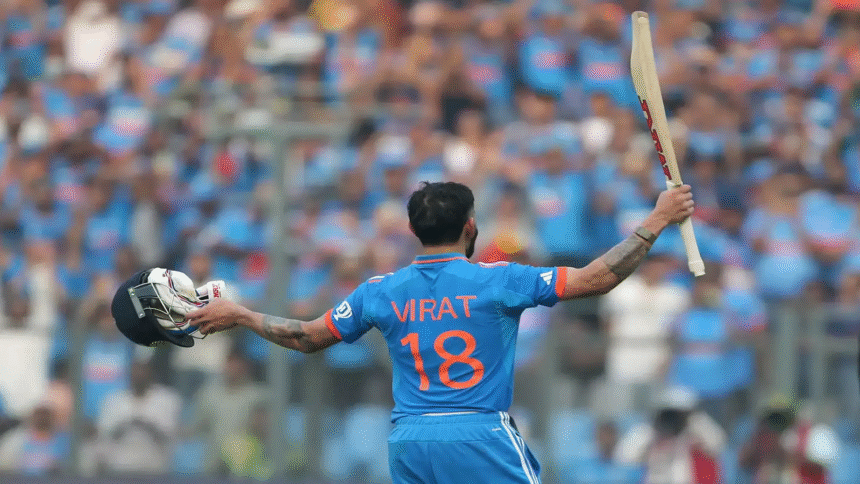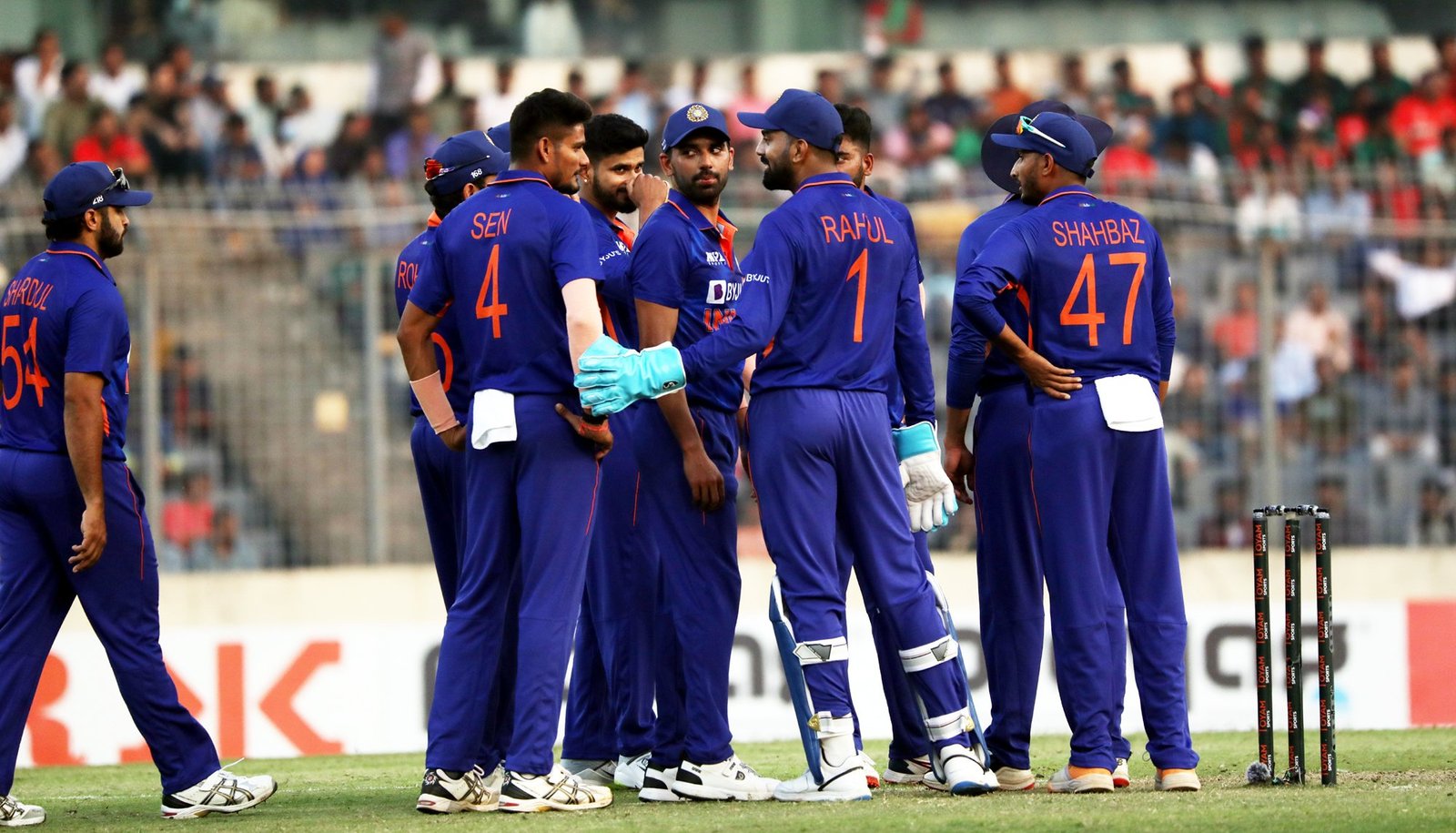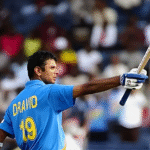Jersey Number Important in Cricket, Jersey numbers have become an integral part of modern cricket, going far beyond the simple role of identification on the field. Today, these numbers serve as powerful symbols connecting players, fans, and the very history of the sport. Jersey numbers create a unique identity for cricketers, foster emotional bonds among fans, and often carry personal or cultural significance for the wearer.
This article explores why jersey numbers are so important in cricket, their roles both practically and symbolically, and how they contribute to the game’s rich tapestry.
The Practical Beginnings of Jersey Numbers in Cricket
Cricket players initially wore plain whites with no numbers on their backs. Jersey numbers were introduced with the rise of limited-overs cricket in the 1970s and became standardized with colored kits in the 1990s, especially with the advent of One-Day Internationals (ODIs).
Numbered jerseys helped viewers, commentators, and officials distinguish players quickly during fast-paced limited-overs matches. In modern cricket, with multiple formats and large squads per team, jersey numbers are essential for clear identification.
Beyond Identification: The Symbolic Power of Jersey Numbers
While jersey numbers serve practical purposes, their significance runs much deeper:
Personal Identity and Brand
Cricket players use jersey numbers as personal signatures, a form of branding. Just as batting style or bowling action defines a player’s athletic identity, so too does their number on the jersey.
For instance:
-
MS Dhoni’s number 7 is instantly recognizable and linked to his leadership and legacy.
-
Sachin Tendulkar’s number 10 evokes memories of unparalleled batting mastery.
-
Virat Kohli’s number 18 embodies aggression and consistency.
These numbers help players forge connections with fans and establish their unique place in cricket’s global narrative.
Emotional and Superstitious Significance
Many players choose their jersey numbers based on emotional connections, superstition, or personal milestones.
Reasons include:
-
Birthdates or anniversaries: Players like Yuvraj Singh (#12), who was born on 12/12, choose numbers reflecting these special days.
-
Tributes to idols or family: Shubman Gill chose #77 as a homage to Dhoni’s #7 in a creative manner.
-
Lucky numbers and numerology: Some players believe certain numbers bring good fortune or spiritual balance.
These sentimental reasons add an emotional layer, making numbers more than just identifiers.
Fans and Emotional Bonds
Fans frequently identify with jersey numbers almost as much as with players’ names. Buying replica jerseys with favorite player numbers is a popular way of expressing loyalty and passion.
Jersey numbers become rallying points, social media hashtags, and a way to tell stories of epic matches, memorable innings, or legendary spells.
Marketing and Merchandise
Jersey Number Important in Cricket, Jersey numbers are vital branding and commercial tools. They drive sales of replica jerseys and other merchandise worldwide, forming a significant part of cricket’s business ecosystem.
Sponsorships and endorsements often highlight players’ numbers, making them an essential part of marketability and fan engagement strategies.
How Jersey Numbers Help Enhance Broadcasting and Analytics
Jersey numbers are also crucial in modern cricket broadcasting technology. With multiple camera angles, replays, and analytics, they allow commentators and viewers to easily identify players during fast gameplay and multi-team tournaments.
Decision Review Systems (DRS) and match event tracking also benefit from jersey numbers to ensure precision in technology-aided cricketing decisions.
The Continuity and Legacy Across Formats and Leagues
Cricket players often participate in multiple formats (Test, ODI, T20) and various franchise leagues around the globe. Maintaining the same jersey number across these platforms helps players maintain a consistent identity, leading to stronger fan recognition.
For example, Jasprit Bumrah wears number 93 in all formats and leagues, creating a brand continuity that fans easily associate with the player. This thread of identity ties together diverse cricketing appearances into a singular, recognizable symbol.
Retired and Iconic Jersey Numbers in Cricket
Sometimes, cricket boards retire jersey numbers post-retirement of legends to honor their contributions. These numbers become immortalized, never to be worn again in international cricket.
For example:
-
MS Dhoni’s number 7 was retired by BCCI in 2023.
-
Sachin Tendulkar’s number 10 was retired in 2017.
These acts emphasize the emotional and historical importance jersey numbers hold within cricket culture.
The Future of Jersey Numbers in Cricket
As cricket evolves with new formats, larger leagues, and increasing commercialization, jersey numbers will continue gaining importance as symbols of legacy, identity, and commercial value.
With emerging stars like Shubman Gill (#77) and rising franchise cricket popularity worldwide, jersey numbers will deepen their cultural and sporting significance, continuing to bridge generations of players and fans.
Read More: Top 10 Iconic Cricket Jersey Numbers in 2025
Conclusion
Jersey Number Important in Cricket, Jersey numbers in cricket serve multi-dimensional roles—from practical identification and broadcasting aid to deep emotional, cultural, and commercial significance. They form personal brands for players, connect fans emotionally to the game, and create a rich visual language for storytelling in cricket.
Far beyond just numbers on a back, jersey numbers blend tradition, superstition, loyalty, and iconic status in modern cricket. Those digits become a player’s legacy, a fan’s identity, and an enduring thread in cricket’s vibrant tapestry.






